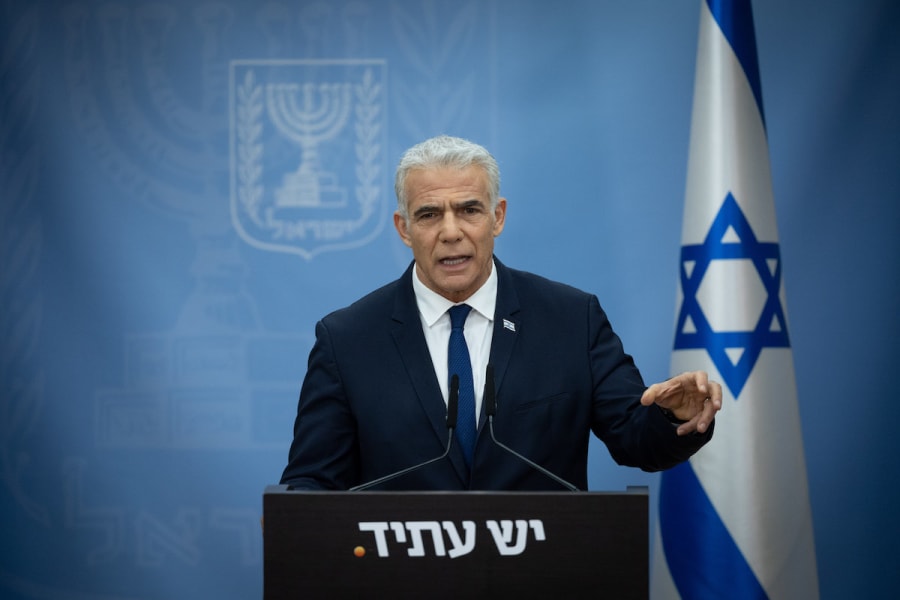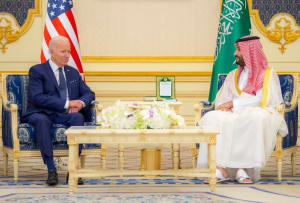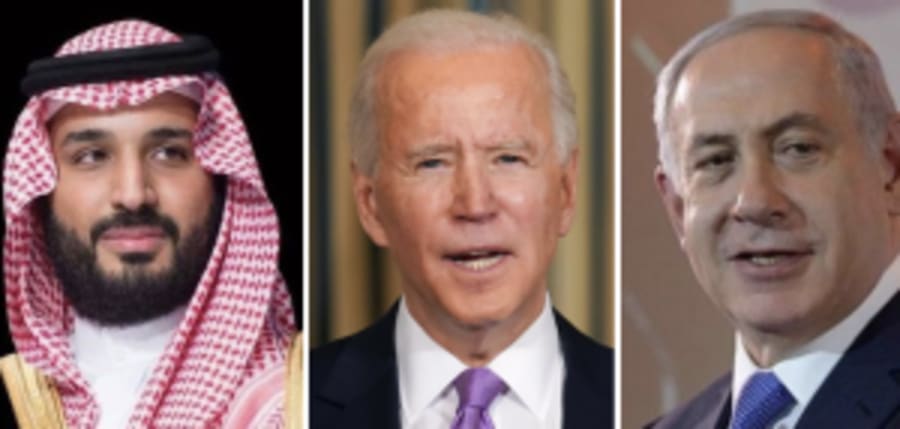Lapid warns against allowing Saudi Arabia to enrich uranium
Saudi uranium enrichment would lead to a nuclear arms race, Lapid says

A deal allowing Saudi Arabia to enrich uranium would spark a dangerous arms race, opposition leader Yair Lapid warned in an interview with Israel's Channel 12.
“Israel can’t agree to uranium enrichment in Saudi Arabia, because it endangers its national security,” Lapid said.
“It would harm our campaign against Iran. It would lead to a regional nuclear arms race. Egypt and Turkey won’t agree to uranium enrichment on Saudi territory unless they can do it, too. But they will want Russian or Chinese technology,” Lapid argued.
His comments to Channel 12 news and a visiting US House Democrat delegation come amid concerns about the potential effects of the much-discussed deal to normalize relations with Saudi Arabia.
While Lapid is not opposed to a peace deal with Saudi Arabia, the Yesh Atid party leader emphasized that he would not support it at any cost.
“There is no problem with a civilian nuclear program,” Lapid said. “There are countries in the Middle East like the United Arab Emirates that have a civilian program. What they don't have is the ability to produce uranium."
“But with respect to Saudi Arabia, that is what is on the table now and it can’t be on the table,” he added.
The Likud party responded to Lapid's comments in a statement, saying "Prime Minister Benjamin Netanyahu delivered four historic peace agreements that only strengthened the security and prestige of the State of Israel and will continue to do so."
“Lapid, who gave Hezbollah Israeli gas reserves for free, should not preach to Prime Minister Netanyahu, who will continue to protect the security and vital interests of Israel in any peace settlement."
Two weeks ago, National Security Advisor Tzachi Hanegbi rejected media reports about likely concessions in a deal with Saudi Arabia and stressed that “Israel will not give in to anything that will erode its security,” the Times of Israel reported.
Regarding the possibility of Saudi Arabia building a nuclear energy plant, Hanegbi said Israel is not concerned because it “is not something that endangers them nor their neighbors.”
On Wednesday, the Wall Street Journal reported that the U.S. Biden administration and Saudi Arabia reached a broad understanding in outlining a Saudi-Israeli peace deal.
According to the report, U.S. officials have expressed optimism that such a deal could materialize over the next 9 to 12 months, however, the White House has since dampened the expectations.
U.S. National Security Council spokesperson John Kirby cautioned, “Quite frankly, just to be blunt here, I think the reporting has left some people with the impression that the discussions are farther along and closer to some sense of certainty than they actually are.”

The All Israel News Staff is a team of journalists in Israel.
You might also like to read this:
















